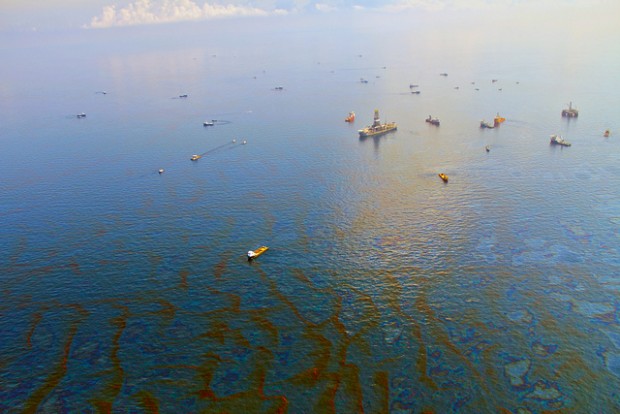 Oil spills can be devastating to natural areas, with both flora and fauna being negatively impacted. The Deepwater Horizon disaster in 2010 highlighted the desperate need for an easy and environmentally friendly way to clean up oil spills. The search for a solution has led to one particular answer according to a recent article posted on the online science website Red Orbit.
Oil spills can be devastating to natural areas, with both flora and fauna being negatively impacted. The Deepwater Horizon disaster in 2010 highlighted the desperate need for an easy and environmentally friendly way to clean up oil spills. The search for a solution has led to one particular answer according to a recent article posted on the online science website Red Orbit.
American Chemical Society
The American Chemical Society (ACS) has an ongoing series of podcasts available that discuss a number of different research projects, studies and reports. The Global Challenges/Chemistry Solutions podcast series has won a number of different awards, and presents some of the 21st Century’s largest challenges. They also discuss how research in chemistry that is on the cutting edge of knowledge can be used to solve some of these problems, such as providing alternatives to petroleum, preserving the environment, providing food and water on a global basis and assuring a sustainable future. The latest podcast described a report from Seshadri Ramkumar, Ph.D.
The Report
The report was published in the ACS journal Industrial & Engineering Chemistry Research, which is authored by Ramkumar. The author and his team recognized that there is a huge need for oil-spill sorbents that are easily available, sustainable, biodegradable and inexpensive. While there has been many studies conducted on natural fibers including wool, kapok and barley straw, there has been little to no data on unprocessed raw cotton.
The Results
Ramkumar and his research team decided to test the oil absorption properties of low micronaire cotton. This type of cotton is essentially a form of unprocessed cotton that has a relatively small commercial value. The results found that each pound of the unprocessed cotton was able to sop up and hold in an excess of 30 pounds of crude oil. The fiber does this in a variety of different ways including both absorption and adsorption in which oil sticks to the cotton fiber’s outer surface.
Conclusions
The report concludes that raw cotton fits the parameters of the problem of oil spills in many ways. The micronaire cotton is inexpensive, and requires no processing. That makes it a natural fiber that has a small environmental footprint. Cotton is both fast and easy to grow, making it a fairly sustainable product. Cotton, especially in this raw and unprocessed form, is readily available on a global scale. It does not require a huge amount of water to keep cotton growing, which adds to its sustainability. Lastly, cotton is completely biodegradable, as it is a natural fiber. It breaks down quickly and easily. All indications point to raw cotton as an eco-friendly sorbent for oil spill cleanups. This research study and report found that raw cotton, in contrast to synthetic sorbents, is a great solution for oil spills. Its high oil absorption capacity and environmental properties make it an ecologically friendly sorbent for oil spill cleanups. Further studies will need to be conducted, but all of the initial indications thus far have been positive. Image Source: Flickr/Green Fire Productions


